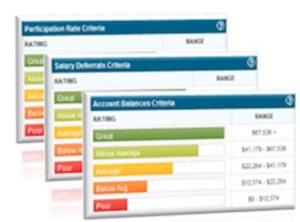There are periodic calls for more transparency on mutual fund fees and 401(k) plan fees. However, using the publically available information on these funds proves they still eat chunks of your retirement money.
For example, three of the most popular mutual funds that track the S&P 500 in 401(k) plans took between 12%-37% of your investment balance over 30 years. So instead of retiring with a balance of $150,000, your account will only reflect $94,500; and this is before you pay income tax on your withdrawals.
A study by the Center for Retirement Research at Boston College last month showed that fees from 401(k) plans reduce account balances by an average of 16% over 30 years. This drain is from high fees from passively-managed indexes, not the research intensive actively-managed funds which have even higher fees.
You may be thinking about now, “But my employer makes contributions to my 401(k) plan, that is free money. If I don’t contribute, then I am turning away free money!” Half of all employers do not contribute and of those that do, the average contribution is 3.6% match of the employee’s salary.
Whatever contribution your employer makes, you need to calculate if it is large enough to offset:
- High fees
- Poor performing funds
- The inflexibility of your plan’s portfolio options
- Your other investment and account-type alternatives.
Although many people ask for my assistance in evaluating the 401(k) plan options, I have yet to come across a plan whose employer contributions fully make up for these shortcomings. Doing this math is part of financial literacy that so few people actually map out. If you are financially ambitious, you’ll be better off putting your retirement dollars in some other location with other types of investments. For example, a far better alternative is a Roth-IRA, which offers more flexibility on every front, and has already been taxed. If you earn too much, everyone can contribute to an IRA account and possibly convert it to a Roth-IRA.

